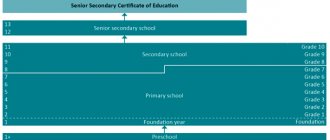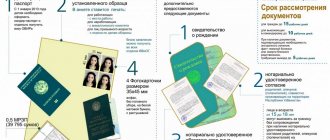Work in Australia is available for Russians and Ukrainians in various fields. The continent is home to 24 million people, with foreign workers accounting for 25%. Despite their loyal attitude towards potential immigrants, Australian authorities set a number of requirements for high-paying jobs: high qualifications, experience and knowledge of the English language.
Ways to find work in Australia
First of all, it is recommended to view vacancies on the official website of the Australian Public Employment Service, which works directly with employers throughout the country. There are departments here that specialize in seasonal work, unskilled labor and vacancies in the service sector.
In addition, you can write to employers directly. Many large Australian companies post job vacancies on their official websites. These include Qantas, Wesfarmers, Suncorp and Caltex Australia.
Working conditions as a driver in Australia
It is better to get a job in well-known organizations that have proven themselves well. The largest companies on the market are linfox, tollgro and some others. Working here is profitable and promising. Let's consider the advantages using the example of the above logistics centers.
Local drivers are very polite on the road, they are not in a hurry and always treat each other with understanding and respect.
Organizations are making every effort to expand their workforce. You will have access to coaching and career guidance programs.
Australian road train from logistics company Linfox. Photo: pixabay.com
Also, Toll and Linfox care about the safety of their subordinates. You will receive ongoing on-the-job training. The company is responsible for ensuring that drivers return home safely.
Large Australian and global organizations have environmentally friendly, comfortable and safe modes of transport, which makes cooperation with them convenient and enjoyable. And most importantly, profitable in terms of finances.
The companies have well-established cargo delivery networks and an innovative fleet of vehicles, providing transportation from parcels and documents to large items and bulk goods.
Here you can familiarize yourself with the types of cargo and transportation conditions. You can contact the employer "Toll" directly through the form. You can contact the recruiters at Linfox by filling out a form on their website, selecting Employment Inquiry , and Australia in the second.
Application form on the Linfox website for employment.
Requirements for candidates
If you are a qualified worker, know English at a sufficient level and sincerely want to live and work on the territory of this continent, then you will find your place.
This year the list of in-demand professions is really wide. If you are interested in working in Australia for Russians, then you will certainly find your employer.
If you are in doubt whether you should go to work in this state, then read these rules and then the decision will be made as informed as possible.
So, the main requirements for Russian applicants in Australia:
- You must be under 45 years of age at the time of submitting your visa application ;
- You must know English at least at the level of Vocational English;
- you need to have a diploma of higher or incomplete higher education;
- the profession you choose must be included in the declared official list of professions of the Australian Department of Migration;
- You must work in the declared profession for at least one year and present a work record book confirming this fact.
How to Assess Your Chances of Successful Immigration
To know whether it is worth applying for the SIV program, it is important to first evaluate the number of points you are likely to receive on the proficiency assessment. To do this, you can use it, which is located on the website of the Australian Ministry of Foreign Affairs.
When considering applications, the following characteristics of the nominee are taken into account:
- age (the younger the better, but not less than 18);
- level of English language proficiency;
- education;
- professional experience;
- experience of studying or working in Australia.
If you receive less than 65 points based on the results of the preliminary assessment, then you should not apply yet. Instead, try to improve your qualifications, such as getting a higher grade English proficiency certificate.
If you received 65 points or more, then your application has a good chance of being approved. The more points you score above the passing 65, the greater the likelihood of a positive answer.
An additional 5 points in the qualification assessment can be obtained through the internship program.
Applying for a work visa
To legally work in Australia, you can apply for several types of work visas. The best option is Subclass 457. The peculiarity of this visa is that a foreign specialist undertakes to cooperate with a specific employer, who vouches for the employee to the immigration services. The document is issued for a period of 4 to 36 months.
- ENS 121 and 856. The first option is issued to foreigners who are outside Australia. The second option is issued within the country. Preference is given to high-class specialists.
- RSMS 119 and 857. The visa is issued to people who have a prestigious higher education.
- LA 120 and 855 . Issued after the candidate receives Sub >The cost of applying for a work visa is AUD 175. Foreigners who have been left without work for some time, but are looking for one, are paid benefits by the Australian government.
Selection criteria for visa applicants
- the future employee must be under 45 years of age;
- you need to know English at the Vocational English level;
- you need to have a higher education diploma;
- the profession must be included in the declared official list of professions of the Australian Department of Migration;
- At least one year of work experience in the declared profession is required.
Work visa extension
A work visa is issued for a certain period, which depends on its subclass. If the company is interested in a foreign employee, the latter can renew the documents. To do this, he goes to the Australian Immigration Services and fills out a special official paper.
In it he writes a rationale for why he wants to stay in the country. The document must be accompanied by a covering letter from the employer and additional fees in the amount of 200 Australian dollars (9,500 rubles) must be paid.
Working at SEEK/Jora
Jora is a small company with all the hallmarks of a startup, inside the large company SEEK, which occupies a large part of the job search market both in Australia and in other parts of the market, Asia, America.
In addition, we are a kind of laboratory of new technologies, which are first tested on us and then implemented into the main brand. We don’t bring in any money, SEEK tells us, but we crawl a bunch of job advertisements all over the world and use super-fashionable technologies that our projects and SEEK’s projects develop.
Development is mainly carried out in Ruby, the main site is on rails, the infrastructure is in AWS, about a couple of hundred boxes in production, we use many services from Amazon, Postgres, Mongo (for geocoding), Redhsift, Periscope (for analytics), Datadog, Rollbar, Kibana , Opsgenie (for support) there are projects on Go, there is one favorite on Clojure, a colleague made a mistake at the right moment, but I’m afraid it will soon be dismantled into logs.
The team is distributed, half of the people work from Sydney, half from Melbourne, morning stand-ups are held via hangouts (now meet) on a big screen, each team member can go to another city twice a year and work in another office for several days, the company pays. Part of the operations team is the people who are involved in adding new sites, supporting crawlers, and translating into other languages. There are 40 people in the team, 18 nationalities, a lot of interethnic jokes, we love the pseudo-war between Brazilians and Argentines 
Weekly cycle, stand-ups at 10 am, many work from 9 to 5, you can work from home one day a week, planning every Tuesday, when we look at what we have done (currently the speed is about 30 tickets per week), sprints are rarely completed completely, there may be up to half of unfinished tasks left. In general, the process is some kind of mixture of Kanban and Scrum, no one really cares about it, new epics are added in planning, they look at which epics have been completed and which are still being monitored. There are two rotating people per week on dev-on-call, support, they are supposed to do tasks from technical debt or simply help operations or solve problems with production, although here everyone comes running to help them.
Epic has a responsible developer, but several people work per epic, there is a kick-off process, when participants sit down and discuss what needs to be done, what tasks, how much to do, at the end there is a hand over process to the strategy team, when they show what was done, usually part of the handover is a demonstration of the dashboard in Periscope, where you can see the data, how the change affected the work of the project, how the engagement changes, there are a couple of analysts who help process all this and monitor all the dashboards used (Periscope is an excellent tool) .
They ask about estimates, like when will you finish the epic, but this is all at a very strange, still unusual level, if you suddenly dull it and something complicated comes out, no one will dig in. In general, there is no such control; with rare exceptions, there are no deadlines. Everyone is cool and eager to do everything well, if there is a delay, usually they just report it and that’s it, maybe they will throw some help if necessary.
A separately made epic is highlighted on the jukebox (like we play old hits) - the person responsible for the epic makes a small presentation on Friday (on Friday at SEEK they open refrigerators with wine and beer and the whole company drinks and chats), tells the company about what they have done and shows the changes the whole team. Often complex features that require discussion are discussed at the same presentations so that people share doubts and ideas. Sometimes people just give lectures about how to earn money from credit card bonuses or how they went to Paris (show photo).
Communication is mainly via Slack, the development process itself goes through Github, as usual, we do PR, quite often we work in pairs, it’s quite common to call a colleague and edit the code in pairs through a shared screen, there are several such sessions a day, PR is sent to development channel of Slack, after two approvals you can merge to master and after running all the tests you can deploy to production. On some production days, a new feature is deployed continuously, every 10 minutes. We write about the changes in the feature_release channel - we explain in non-technical language what was done, everyone reads it.
There is a retrospective process, interestingly, it is not something super formal, rather it is important that people discuss problems and propose some changes. Usually we have a spreadsheet with three sections, with a smiley face, with a surprised emoticon and with a sad emoticon, people write some points there, often jokes - what is happy, what is surprising, what is not liked, then they discuss everything, then vote, three at a time points per person, consider the three most marked points, discuss, look for solutions, and appoint a person in charge.
Quite often, those in charge give up and are reminded (at the beginning of the session they look at what happened in the last retrospective). Despite the fact that the process personally seems careless to me, several times over the past two years the retrospective has led to changes in the general process, some rules about PR reviews have appeared, stand-ups have begun to be conducted differently (for example, now those responsible for epics say that was done in them, and then at the end they separately ask all team members if they have anything to say; before that there was a classic process when everyone spoke to themselves). Retrospective works, but in some way that is unimaginable to me.
The PR review process is quite harsh, this was a separate difficulty for me. I still think it's a difference in the mentality of the Java developer I was and the Ruby process. Let me make a lyrical digression here.
Lyrical digression: what am I doing wrong?
I have quite a lot of experience in Java development, I worked at Deutsche Bank, at Renaissance Capital and at the Moscow Exchange; in total, before moving, I had about 16 years of experience.
I grew up on Martin Fowler, on Gang of Four, and my basic approach to development is quite simple - write tests, make the feature in the simplest and most compact way possible, so that everything is hidden, no tricky pieces of code. If someone is going to add to your feature, they should just sit down and refactor your code so that they can add a piece of its functionality to the existing code. But my colleagues see things differently. I think it's the nature of the Ruby community and the influence of Sandy Metz (she has a couple of phrases in the book that contradict her approach, btw, but the book is damn good), they demand that everything be done right from the beginning, SOLID, and sometimes my PR first collected by (the average number of comments per PR in a project is 10), it happened that PR in github was difficult to open. You should make two classes from each method, although it is unlikely that anyone will ever need these classes, but it will be SOLID.
I'm still not sure if this is the right approach, but I'm learning Ruby and trying to follow my friends' advice, although sometimes it seems crazy. In any case, I overcame this difficulty and now my PRs fly by like a bullet, but the sediment remains. I had to relearn and start doing thousands of classes for every sneeze and puff.
In any case, I overcame this difficulty and now my PRs fly by like a bullet, but the sediment remains. I had to relearn and start doing thousands of classes for every sneeze and puff.
On the other hand, I'm very impressed with the capabilities of the rspec test package, it's just a fairy tale. When I started doing my own thing in Scala, I really felt naked when I realized that there was no such level of flexibility in the test library. Ruby rules in tests, all these contexts, redefining variables with let, we have an unrealistic number of tests (~ 5K in the main project) covering all possible scenarios and no testers at all, they looked at me like I was crazy when I asked if there was a team QA.
In any case, development is a pleasure, everyone is super polite, in the worst case they tell you that the code works, but it would be better to refactor everything into such and such components and use such and such approaches, you don’t really agree, we call you and you refactor together existing code. At the end, you tell each other how cool everything was done, make fun of each other and deploy PR via slack with a shared screen. The level of programmers is mind-blowing, I am still trying to recover from my complexes that I am one of the older ones (I turned 40 this year) and am still learning to program from my colleagues who are 30 years old.
Types of employment
| Type | Characteristic |
| Full employment | 38-hour work week, vacation, sick leave, bonuses |
| Contract | The salary is higher, but social benefits. package not provided |
| Part-time employment | Social package, part-time job |
| Temporary | There is no regulation, wages are paid in cash at the end of the week |
The hardest thing is to find a full-time job with benefits. Usually, applicants find it after they are already in the country and have worked under a temporary scheme.
Professions in demand in 2021
- manager;
- electrician;
- engineer;
- doctor;
- programmer;
- vet;
- builder;
- accountant;
- surveyor;
- explosive
Monthly salary level
For foreigners, Australian companies offer the following monthly salaries:
| Profession | Minimum salary, in Australian dollars | Minimum salary, in rubles | Average salary, in Australian dollars | Average salary, in rubles |
| Manager | 4500 | 210 000 | 5000 | 235 000 |
| Electrician | 5000 | 235 000 | 7000 | 330 00 |
| Engineer | 7000 | 330 000 | 8700 | 400 000 |
| Doctor | 6000 | 285 000 | 7500 | 355 000 |
| Programmer | 4000 | 190 000 | 5000 | 235 000 |
| Vet | 4400 | 205 000 | 5190 | 245 000 |
| Builder | 5500 | 260 000 | 6000 | 285 000 |
| Accountant | 3800 | 178 000 | 4500 | 210 000 |
| Bomber | 7300 | 348 000 | 8100 | 385 000 |
| Surveyor | 6300 | 300 000 | 7500 | 355 000 |
Taxation
The country has a progressive income tax scale. For non-residents of the country:
| Profit for the year, AUD | Rate, AUD |
| 0 – 37000 | 29 % |
| 37001 – 80000 | 10730 + 0.3$ from every $, more than 37000 |
| 80001 – 180000 | 23630 + $0.37 per $, more than 80000 |
| From 180001 | 60630 + $0.45 per $, over 180000 |
Requirements for Russians in Australia
If you are a qualified worker, know English at a sufficient level and sincerely want to live and work on the territory of this continent, then you will find your place.
This year the list of in-demand professions is really wide. If you are interested in working in Australia for Russians, then you will certainly find your employer .
If you are in doubt whether you should go to work in this state, then read these rules and then the decision will be made as informed as possible.
So, the main requirements for Russian applicants in Australia:
- You must be under 45 years of age at the time of submitting your visa application ;
- You must know English at least at the level of Vocational English;
- you need to have a diploma of higher or incomplete higher education;
- the profession you choose must be included in the declared official list of professions of the Australian Department of Migration;
- You must work in the declared profession for at least one year and present a work record book confirming this fact.
Fulfilling these requirements will allow residents of the Russian Federation to easily obtain a work visa to this country, and you will no longer wonder how to find work in Australia.
Business in Australia
The government of the country views the immigration of businessmen as an opportunity to attract capital and talented people to the state who plan to:
- invest your capital in the development of various Australian programs;
- implement your business project on Australian territory;
- invest in Australian companies that are already operating.
The following have the right to enter the country on a business visa:
- Heads of large companies.
- Owners of companies.
- Investors.
Attention! For all applicants, except investors, the age limit is 55 years.
Work without knowledge of the language
Seasonal work
It is very difficult to get seasonal work in Australia if a citizen does not have a passport from the European Union, the United States and a number of other countries.
- auxiliary workers on farms;
- in the service sector;
- administrators in hotels.
A girl, for example, can get a job as a waitress. The salary in this profession is enough to return home with a good profit.
Temporary job
- general workers;
- builders;
- welders;
- cooks;
- drivers.
In addition, miners are often needed in Cannington. How much they earn depends on the company.
Other options
You can go to Australia to work under a contract. After a certain period, the employee has the right to request permanent residence rights. Shift work methods are also allowed. The latter option does not provide for permanent emigration to the country.
How I found a job in Melbourne
Working in Australia is still a very pressing issue for everyone. Those who have just arrived in the country spend hours on employment sites and send out resumes. There are hundreds of copies sent out. Once the people have settled in, they begin to test the waters in search of a better place; “Australian old-timers” easily change companies thanks to a large amount of local experience, connections and often the presence of a local diploma.
My first job in Canberra was found easily, the process took 3 days in total. And after moving to Melbourne, I decided to study. I went through the universities, compared the specialties offered, and the prices for studies. The specialties were pleasing, but the prices were not very good.
A residence permit allows you to study at prices for citizens of the country, which in itself is good, but citizenship makes it possible to obtain a state, interest-free loan for study. After graduating from university and getting a job, the loan amount will begin to be withdrawn in small parts along with taxes. The procedure is painless and uncomplicated. The simple conclusion followed was that it is better to receive local education while already being a citizen of the country.
In the meantime, it was decided to take the OH&S course (Occupational Health & Safety - an analogue of our occupational safety and health). In Australia, safety comes first - fire extinguishers and emergency exits, staircases and fire alarms are checked regularly and thoroughly. Workers are taught how to properly use a stepladder or, for example, lift a box. Each workplace has its own specifics.
Failure to comply with orders and instructions is subject to brutal fines. Therefore, any employee who knows at least the basics of OH&S is already good. And if you also have a certificate, that’s a significant plus.
In parallel with the course, I decided to start looking for a job. Sitting at home was boring and hopeless. With the help of work, you can make friends and acquaintances, get Australian recommendations and experience, improve your resume and English, and obvious advantages such as salary, pension contributions and, in my case, discounts on clothes. Well, work makes me much more productive in general, I start planning my day, menu for the week, time for the gym. There is only one downside to work - you have to work.
With these thoughts in mind, I started sending out resumes and cover letters around Melbourne in the retail section. There was no flurry of calls from employers. I began to rework cover letters for each position individually, looking at the company's history, its philosophy and other things that could show my awareness and interest.
There are an indecently large number of recruitment agencies in Melbourne; large companies use them very often. Agent services cost companies good money, but save time. There is simply a whole army of people willing to work; it will take days, if not weeks, to read resumes and call candidates, so agencies stand like a thick wall, protecting a potential employer from unnecessary hassle and annoying applicants.
After about a month and more than 100 resumes sent out, calls from agencies began to arrive. They all do phone screening, weeding out people with poor language skills and without the necessary skills. Screening takes from 20 minutes to an hour. They ask a lot of questions, ranging from general things (where you were born, where you studied) to very specific ones, which can only be answered with experience or at least knowledge (what scheme do you use to carry out inventory or tell us your standard sales procedure and how you close the purchasing process ?). They may ask what attracted you to this job advertisement.
If you suit the agent, he invites you to an interview in the office. The process takes from 40 minutes to 2 hours; they check the visa and ask for phone numbers of recommenders. They go through the entire resume, so it’s better to know it by heart. They may be asked to review situations and tell you how you dealt with problems. If you successfully pass the second level of the interview, you will be told which company is looking for an employee. This is often not indicated in the advertisement; it describes in vague terms what the company specializes in - shoes, clothing, jewelry, watches, etc.
After this, you will be sent for an interview with the brand's area manager. This is how I got through interviews at Armani and Lacoste for the position of assistant manager. The main questions asked in such interviews:
- – asked to describe your top 5 skills;
- – why did you choose this company;
- – why should we hire you, why are you better than others;
- – what moments were the most difficult in your previous work;
- – how productivity indicators were measured in previous companies;
- – well, simple questions, such as when can you start work, can you work seven days a week or on a flexible schedule, etc.
However, things didn’t work out for me with these brands. At Armani, the interview was conducted by an Arab, everything went well, we talked, he promised to inform the agency about the results. A week later it turned out that he had approved a Muslim friend for the position. There was a similar story at Lacoste, only there was an Asian woman there, she hired a girl from China. At the interview, I saw stacks of resumes, there were 50-70 resumes that had already been selected, that is, 50-70 people applied for this position.
I can say that the agencies are pursuing their own monetary interest, they will give you a couple of tips regarding what the employer’s requirements are, they will send you an email with the history of the company, they will tell you to get yourself in order before the interview, and that’s all. If you fail in the first two or three interviews organized by the agency, most likely they will stop contacting you and start considering other candidates.
Many of the resumes I sent out received responses that briefly and politely informed me that “thank you, sorry, but no, we wish you good luck.” I didn’t stop and sent it out further. I began to focus on direct advertisements, without agencies. This also had its own specifics.
Often, a resume is sent through the website of a company that is looking for an employee, where you will have to create an account and enter basic information: name, date of birth, address. Then describe your career path, with a brief summary of your main responsibilities and skills. Then, again, examples of situations and a request to describe your vision of solving this problem. For example, a client wants to buy a ring for $10,000, you know that he took out a loan from the bank for this purpose, and you also know that later, he will not be able to repay this loan. Will you sell the ring? Justify your actions. Or talk about a situation where you solved a problem, but were still unhappy with how the situation was resolved.
Some companies ask you to fill out health questionnaires, I had a questionnaire asking for my height and weight, if I smoked, and if I had a tetanus shot.
Several brands asked for police check, and absolutely everywhere it was necessary to indicate the type of visa.
Knowledge of Chinese is a definite plus. Luxury brands such as Chanel, Prada, Tiffani, LV and others indicate this in their job advertisements: “knowledge of Chinese is required.” The Chinese easily part with money earned in the Middle Kingdom. They love good things and can afford them. I’ve already learned how to say hello, thank you and goodbye in Chinese. And we will need to further expand our Chinese vocabulary.
In total, I sent out 150 resumes, went through 15 interviews, all of them followed a standard three-level scheme: filling out an online application form, an interview with an agent or the company’s HR (head of the HR department) and an interview with an area manager (the head of control of all stores in a given state or territory).
And then one of the interviews, unexpectedly for me, ended with a job offer. I was offered the position of manager of one of the ESPRIT stores, although initially I was interviewed for a full-time sales assistant and assistant manager.
So, I’m slowly joining the team and getting used to new responsibilities and getting up early. Read about the pros and cons of working in retail here.
In the meantime, Seryozha is the most happy, I will now give him a ride to the office in the city on the way to the store. Driving around the center of Melbourne is a special pleasure, which you can read about here.
How I found a job in Melbourne was last modified: November 28, 2014 by Svetlana
AustraliaMelbournejob
Illegal employment
Migration services regularly conduct raids to identify illegal workers.
The country has an electronic service called VEVO, which reflects all visas and work permits received. The caught offender is sent to the Temporary Detention Center for Illegal Workers, after which he is deported from Australia. And the employer faces a large fine, and subsequently a trial, since this is a direct violation of the law.
Finding a good job in Australia is not easy or quick, but those who manage to get a job are invariably satisfied with decent pay, decent working conditions and a high quality of life.
Consequences for attempting illegal employment
Illegal employment in Australia is a direct violation of the law. The country's immigration services and police regularly conduct joint operations to identify violators. Australia also has an electronic VEVO system. Through it, the visa category of all applicants is checked and the right to work in the country is established.
Australia is difficult to get into, but it welcomes highly qualified foreigners. Even workers from Canada come here. Russians, Belarusians and Ukrainians who found the vacancies they needed and left for this continent to work do not regret their decision.
High paying job
High wages are observed for people who work in mines or in the mining industry.
Depending on qualifications and position, a person can earn from $80,000 to $240,000 per year.
People specializing in geotechnical engineering, structural engineering or structural engineering can earn around $210,000. However, getting into these positions is not so easy, because... and there is high competition among local residents for such work.
Holding the post of director or manager, you can safely count on a salary from $50,000 to $240,000. It depends mainly on how large a company you run and what it does.
Analyzing vacancies in Australia, you can see that the position of a doctor is one of the most prestigious and highly paid professions. Depending on experience, specialization and place of work, you can earn from $130,000 to $150,000 per year.
Visa and its types
The Australian work visa for Russians, Belarusians, Ukrainians and other residents of the former CIS countries has several subtypes:
- temporary;
- workshop;
- employment according to certain plans;
- for specific highly qualified specialists.
A master's visa is issued only to those migrants who have an invitation from a local employer. It should be taken into account that the inviting firm or company must have official permission for sponsorship, and the desire to employ a citizen of another power must be approved by the Migration Department.
Australian visa sample
This category of permits is issued for a period of 4 years and can be renewed an unlimited number of times. The advantage is that, having found employment in Australia, foreign citizens have the right to bring here all members of their family, who will be able to study and work legally.
A permit for temporary or non-permanent employment is also issued if there is an invitation. But in this case, the migrant does not have the right:
- change the location yourself;
- work for yourself;
- perform duties that do not correspond to his qualifications and competence;
- be employed in several places at the same time.
A short-term permit for specific work is issued for a period of up to 6 weeks and can be extended up to 3 months.
Work permits for certain plans are most often issued to young foreigners under cultural exchange programs and require an internship. To apply, you must have a letter of invitation.
Working in Australia attracts foreign migrants with high salaries, comfortable conditions, plus living in a developed country in favorable climatic conditions and at a quite decent level. But there is another side to the coin; finding a job in Australia is not so easy. First of all, this concerns skilled labor with high wages.
Average salary statistics in Australia according to the Australian Bureau of Statistics, Australian dollars per week
Here you can often meet people who came here for the purpose of employment in their main specialty, but are forced to work in low-paid and unskilled jobs. This is explained by the fact that migrants must register, obtain an appropriate license, and may additionally require references and recommendations. This is associated with additional time and financial costs. You should know that without knowledge of the language, in particular English, there is no point in applying for a highly paid vacancy.
Business immigration
The Australian authorities have thought through all the principles of business immigration. They are interested in attracting experienced entrepreneurs.
Initially, most foreign businessmen receive a temporary class 188 visa. It is issued to entrepreneurs who score at least 65 points on a special test adapted for assessing investors. They must also obtain approval from the sponsoring state. If the enterprise turns out to be profitable, the investor will be able to apply for a permanent visa.











